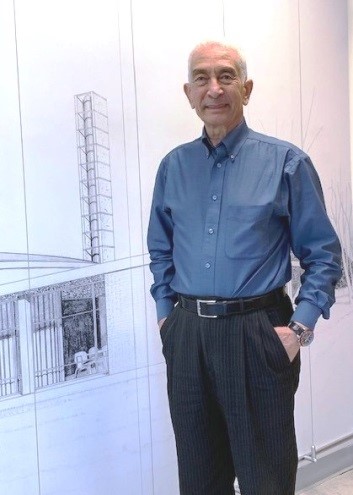 Congratulations to Dr. Mohamed Bourham, 2018-19 university-level Outstanding Teacher awardee. Through NC State’s Office of the Executive Vice-Chancellor & Provost, this award recognizes excellence in teaching at all levels. Recipients become members of the Academy of Outstanding Teachers for as long as they remain at NC State and their names will be published in the commencement program.
Congratulations to Dr. Mohamed Bourham, 2018-19 university-level Outstanding Teacher awardee. Through NC State’s Office of the Executive Vice-Chancellor & Provost, this award recognizes excellence in teaching at all levels. Recipients become members of the Academy of Outstanding Teachers for as long as they remain at NC State and their names will be published in the commencement program.
Dr. Bourham, Alumni Distinguished Graduate Professor of Nuclear Engineering, joined the university in 1987. He earned his B.Sc., M.Sc. and PhD from Alexandria, Cairo and Ain Shams universities in Egypt, respectively, in Electrical Engineering. He has taught a diverse number of departmental courses and has successfully obtained educational grants from the U.S. Department of Education and the U.S. Nuclear Regulatory Commission in support of undergraduate and graduate students. Alumni taught by Bourham have remarked –
“I learned about so many interesting topics within nuclear engineering and plasma science from him that I would not have been taught otherwise. I could sit for hours in his office and listen to him talk about the future direction of plasma physics and fusion energy, as he writes equations on the blackboard in his office. Those interactions are what truly set him apart as an outstanding teacher and professor and make him tremendously worthy of this honor.” – Dr. Michael Fusco
“As a former student of his, Dr. Bourham has profoundly shaped both my academic and professional careers through his enthusiasm and constant encouragement. He truly is an outstanding teacher and is fully deserving of this recognition.” – Dr. Jonathan Coburn
At the College of Engineering level, Dr. Bourham serves as the Director of the Master of Engineering program. He also serves on numerous graduate committees, sponsors postdoctoral fellows and visiting scientists and mentors undergraduate students in research opportunities.
His research areas include plasma-matter interactions, electrothermal plasmas for propulsion, thrusters and pellet injectors for fusion fueling, shielding and radiation attenuation studies, nuclear and mixed waste disposal, dry casks and high-level waste packaging, and evaluation of materials’ corrosion using electrochemical techniques.
